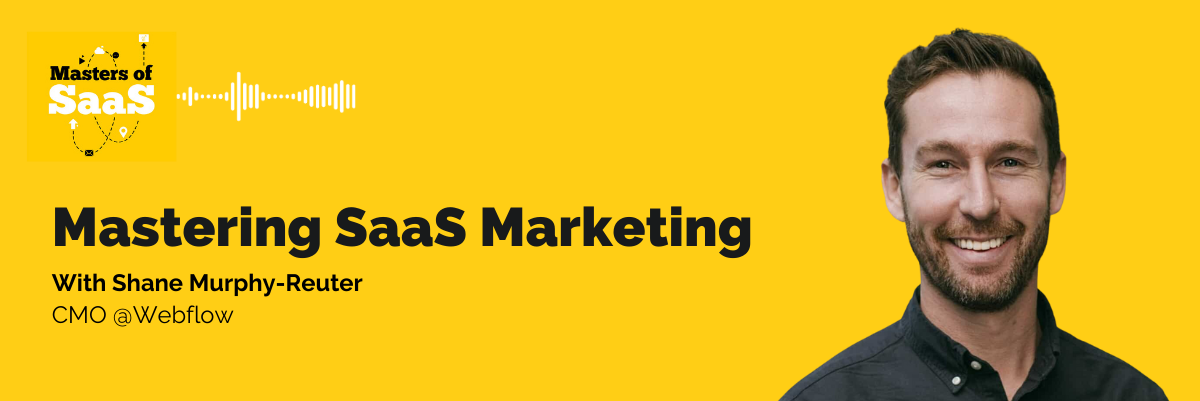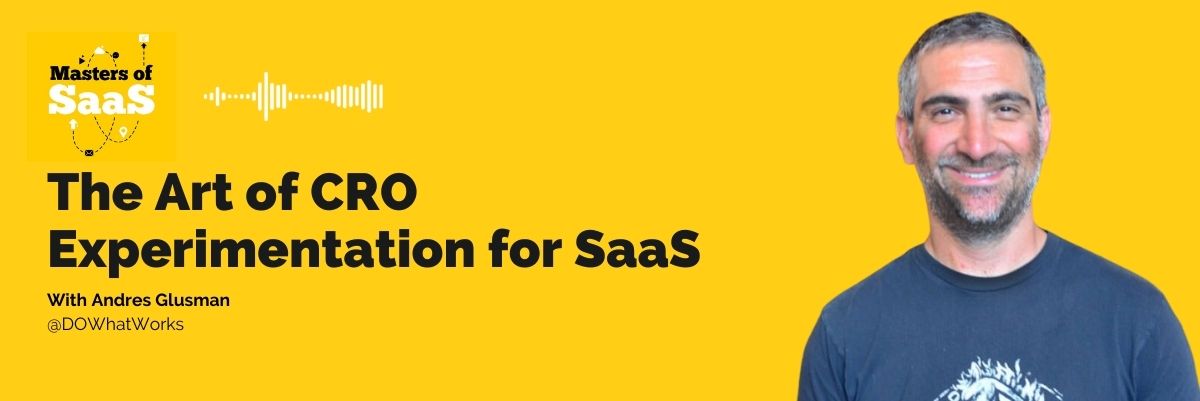We spoke to Tim Soulo, Chief Marketing Officer and Product advisor at Ahrefs, about how the company grew their business with content & SEO, the key questions that lead to excellent content, and a failure that turned into a lesson.
Tim Soulo is the Chief Marketing Officer and Product advisor at Ahrefs, an industry-leading SEO tool powered by Big Data. He’s also one of the SEO industries leading experts, so we asked him to join us on our podcast and share his best content advice.
Tim also shares the simple but powerful framework used by Ahrefs to select and create content around business potential and the three variables or prerequisites required to gain links to your content.
Tim also shares the simple but powerful framework used by Ahrefs to select and create content around business potential and the three prerequisites that are required to gain links to your content.
Love the show? Please review us on Apple or Google podcasts.
Quick bio
Name: Tim Soulo
What he does: CMO and Product advisor at Ahrefs. You can also find his work on his blog titled Bloggerjet.
Tim on the web: Twitter | LinkedIn | Medium | Bloggerjet
Episode highlight: Tim’s story about Rand Fishkin, the founder of Moz. Tim spent an entire month, creating a piece of content that he believed was his best work. He reached out to Rand and asked for a tweet to share his fantastic work. The feedback Rand provided was incredibly insightful and a powerful lesson Tim has carried with him ever since.
Top tips from this episode
Understand if people are proactively searching on Google around your problem
People are not always aware of the problem that the company is solving. It’s the case for many SaaS companies. What happens if there’s no search related to the challenge? There is no way to create content and get traffic towards your business and your product.
“Study what kinds of things people might search that is relevant that is related to the problem that you’re solving, and what is the depth and breadth of those topics, says Tim. This will also help you understand if SEO is the right marketing strategy for you.
Use the business potential score to find the right keywords with your product/service
Instead of matching keywords and topics to different stages of the buyer’s journey, Tim and his team developed their kind of score:
“Basically, it’s a score from zero to three.
Three means that your product is a unique solution to the problem.
For example, if someone is searching for how to lose weight, the replaceable solution is diet. So you cannot lose weight unless you eat less.
The business potential score of two is where your solution is beneficial, but people can do without it. If you have a diet, you can add exercise or supplements – things that are helping you to lose weight but are not necessary.
A business potential score of one – if your product can be mentioned, but it’s not immediately relevant to the problem people are trying to solve.
Back to the diet example, that could be workout equipment. So it is relevant, you can still mention it in the article, but the chances that people would be interested in buying it by reading that article are slim.
The business potential of zero means there’s no way to mention your product within the article. Back to the weight loss article, you cannot say, I don’t know, paper towels. I don’t see how that relates to weight loss.”
Episode Highlights
Transcript excerpts from the interview
How Ahrefs eats its own dog food by using content & SEO to grow the company
“We simply targeted all the topics regardless of how hard they were. So even If we knew that we would publish an article, and we won’t be able to rank for that keyword, we would still write it within a year because we need it.
As time went by, we started to rank for those challenging topics. If the topic is challenging, if the competition is high, and you understand that your chances to rank for the topic right now are zero, it doesn’t mean that you need to put down for later because that later can never come.
So you should target it right now, knowing that you won’t rank for it, but at least by trying to rank for it. You will get a little bit of backing, so you’ll get a little bit of exposure, a little bit of credibility. And then you can tackle this topic again and again and again. Finally, if you punch enough, you’re going to break that wall.”
How Rand’s Fishkin’s feedback changed Tim’s take on good content
“What Rand replied to me changed my perspective for the next many, many years.
He said, “your article is good. It is well written, it has a lot of great advice, but I don’t see any original ideas. And I’m very picky about my social sharing because my followers expect something new for me. I cannot just tweet platitudes all the time, so I have to come up with interesting things. Otherwise, people just will stop listening. So I’m sorry, but I cannot read your article”.
So this is the story that happens to most people. If you don’t have unique ideas and you reach out to people in your field. That’s what they’re going to say to you: your article is good, but I’m afraid there is nothing unique that I would be interested in share with my audience. That’s the story.”
The 3 variables to gain links to your content

“Do you have anything new to say?
Do you have the credibility to say it?
Can you say it well?”
How do you get initial traction? How do you get eyeballs?
“Hustle. And what you do, you just create the best content you can. Then you reach out to people, and then you run ads on Facebook, on Twitter to get more eyeballs to this content, and you build your reputation.”
SEO is a long term game. But at the same time, the person who wins the game gets a huge reward.
“When I joined Ahrefs, the blog was getting 15,000 visits per month from Google. Today we have over 700,000 visits per month from Google, not counting referral traffic, direct traffic from tweets, etc. Imagine every month 700,000 people land on your content, where you can teach them about your product about your business. This is why here at Ahrefs, we don’t have a sales team. We don’t do any product demos; we don’t do any sales calls. People discover our content by searching for it on Google or YouTube.”
Top quotes:
[14:20]
“Instead of hiring a lot of people to fill every little position we have, like one person to work on our Twitter, one person to translate our articles, we have just a few people who are very knowledgeable in the SEO field. I guess this is what allowed us to outperform those other companies.”
[29:53]
“It’s not up to you to decide if your content is great. Actually, the thing is, links are what determines if your content is great. If other people are willing to link to your content, then your content is great. So if you’re promoting your awesome piece of content, and no one is linking to it, it means your content is not awesome.”
[45:40]
“The bad thing about a tonne of advice that I’m hearing is that it is pulled out of context. So a lot of people would advise doing things based on their situation.
And other people who are in a completely different situation think that this advice applies to them because they don’t know the context. They will try it, and they would think it was bad advice. I think this is the problem with getting advice from like a short tweet.”




Share